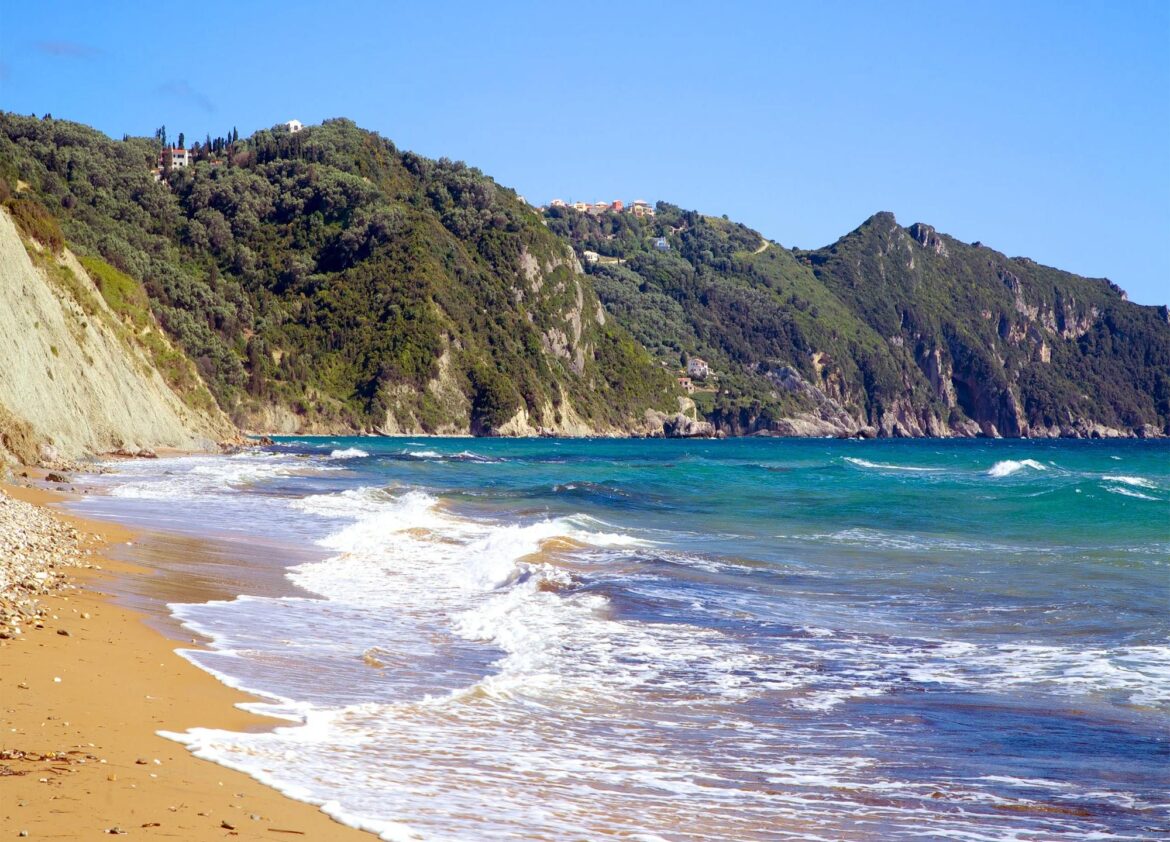Corfu. The name conjures images of sun-drenched shores, azure waters, and a certain… something. But what is it that distinguishes Corfu’s beaches from the countless others scattered across the Greek isles? It’s more than just postcard-perfect scenery; it’s a convergence of natural beauty, historical resonance, and a uniquely Corfiot spirit.
The island presents a paradox: a well-trodden tourist destination that still manages to hold onto pockets of unspoiled tranquility. This allure has drawn visitors for decades, and the reasons for its enduring appeal are multifaceted.
To understand the magic, we must first acknowledge the problem: overtourism threatens to erode the very qualities that make Corfu special. The proposed solution? A shift towards sustainable tourism, encouraging visitors to explore beyond the crowded hotspots and to support local businesses committed to preserving the island’s natural and cultural heritage. The expected outcome is a more balanced tourism ecosystem, one that benefits both visitors and residents alike, ensuring that Corfu’s beaches retain their magic for generations to come. And to maintain the island’s legacy, it is importnt to preserve the unique history of the land.
Consider these elements:
- Geographical Diversity: From the golden stretches of Glyfada to the secluded coves of Paleokastritsa, Corfu boasts an astonishing variety of coastal landscapes within a relatively small area.
- Ionian Sea’s Clarity: The waters surrounding Corfu are renowned for their exceptional clarity, offering unparalleled visibility for snorkeling and diving.
- Historical Tapestry: Corfu’s beaches are often interwoven with historical landmarks, from ancient ruins to Venetian fortresses, adding a layer of depth and intrigue to the sunbathing experience.
“It wasn’t just the color of the water, or the shape of the coastline,” recalls Eleni, a local taverna owner. “It was the way the light hit the old fortress in the distance, and the sound of the cicadas in the olive groves. Something fundamental had shifted,” she said, describing her first experience of a Corfiot sunset. The isladn’s spirit is like no other.
The island’s west coast, in particular, is famed for its dramatic sunsets. Loggas Beach, with its towering cliffs, provides a breathtaking vantage point as the sun dips below the horizon, painting the sky in vibrant hues. This natural spectacle has become a nightly ritual for many, a moment of collective awe and appreciation.
Beyond the visual splendour, Corfu’s beaches offer a sense of accessibility and comfort that is often lacking in other, more remote Greek islands. While some hidden gems require a bit of effort to reach, many of the most beautiful beaches are easily accessible by car or public transport, with ample facilities such as sunbeds, tavernas, and showers.
However, this accessibility also presents a challenge. As tourism continues to grow, there is a need to manage visitor numbers and to protect the fragile ecosystems that support these coastal environments. The problem lies in balancing the economic benefits of tourism with the environmental and social costs. The proposed solution involves implementing stricter regulations on development, promoting responsible tourism practices, and investing in infrastructure that minimizes the impact on the natural environment. The expected outcome is a sustainable tourism industry that preserves Corfu’s beaches for future generations.
But perhaps the most intangible element of Corfu’s beach magic lies in the warmth and hospitality of its people. From the family-run tavernas serving fresh seafood to the friendly locals offering advice and directions, the Corfiot spirit adds a human touch to the island’s natural beauty.
Take, for example, the story of Spiros, a fisherman who has spent his entire life working the waters around Corfu. In a recent Facebook post, he wrote, “The sea is in my blood. It has provided for my family for generations. We must protect it, not just for ourselves, but for those who will come after us.” His words echo the sentiments of many Corfiots, who are deeply connected to the island’s natural heritage and are committed to preserving it for future generations.
It’s this combination of stunning scenery, crystal-clear waters, historical significance, and genuine human connection that makes Corfu’s beaches so special. They are more than just places to sunbathe and swim; they are living, breathing landscapes that resonate with the island’s unique history and culture. One only needs to stroll down the streets to appreciate Corfu’s history.
The island is a captivating experience, and it is important to consider how to protect the island’s treasures. It is a call to action, a plea to protect what is special, and to work towards a future where the beauty of Corfu’s beaches can be enjoyed by all, without compromising the well-being of the island and its people.
As one X.com user recently commented: “Corfu just hits different. The vibes are immaculate.”
The feeling is mutal.
The feeling is mutual.



